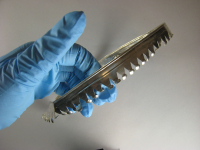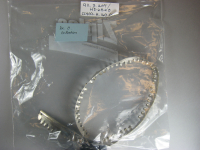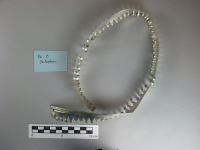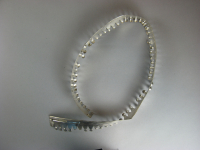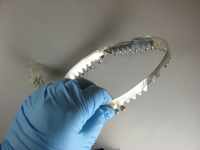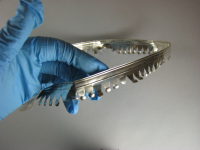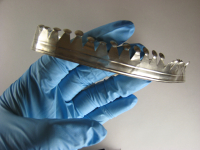hatband, silver
hatband, silver
hatband, silver
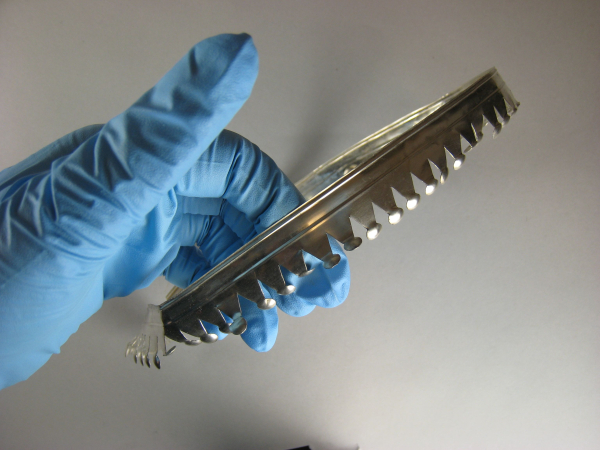
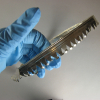
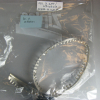
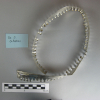
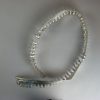
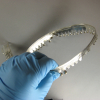
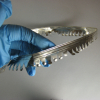
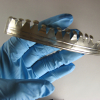
Hatband made of a long thin band of silver bent into a circle. Bosses found on the tops of the pointed upper edge, with parallel grooves running along the bottom edge. Dr. Oronhyatekha Ethnology collection.
GRASAC generated
Read More About This Relative
Silver
Band of thin silver bent into a circle. Grooved lines are possibly impressions made through the rolling method(?). Scalloped embossed edge. Single circular perforation at either terminal.
Provenance
F. Barlow Cumberland, Catalogue and Notes of the Oronhyatekha Historical Collection (Toronto: Independent Order of Foresters, 1904), p 63-64, Item(s) 389-396. "Silver Head-Dress Bands (8). Silver head-dress bands, brooches, etc. were early used by the Dutch, French and English in trading with the Indians. Some have considered that they were the work of the Indians themselves, but the shape and workmanship would indicate European origin. The long silver bands encircled the fillet in which were placed the eagle's and other feathers of a Chieftain's head-dress. (See engraving Penn's Treaty, No. 511 and Nos. 62, 91). Smaller bands were used as armlets. A brisk trade was carried on by the Dutch and French with the Five Nations Tribes between 1610-1700..."
About This GRASAC Record
Unknown artist, hatband, silver. Currently in the Royal Ontario Museum, 911.3.207. Item photographed and described as part of a GRASAC research trip December 2008; GRASAC item id 1587.
Record created as a result of a GRASAC-sponsored research trip to the Royal Ontario Museum, December 15-19, 2008. Research costs supported by a SSHRC Aboriginal Research Grant (2007-2010, Ruth Phillips, PI). Record created during post-trip clean up by project RA Lisa Truong, under the supervision of Heidi Bohaker.













 Knowledge Sharing Platform
Knowledge Sharing Platform

